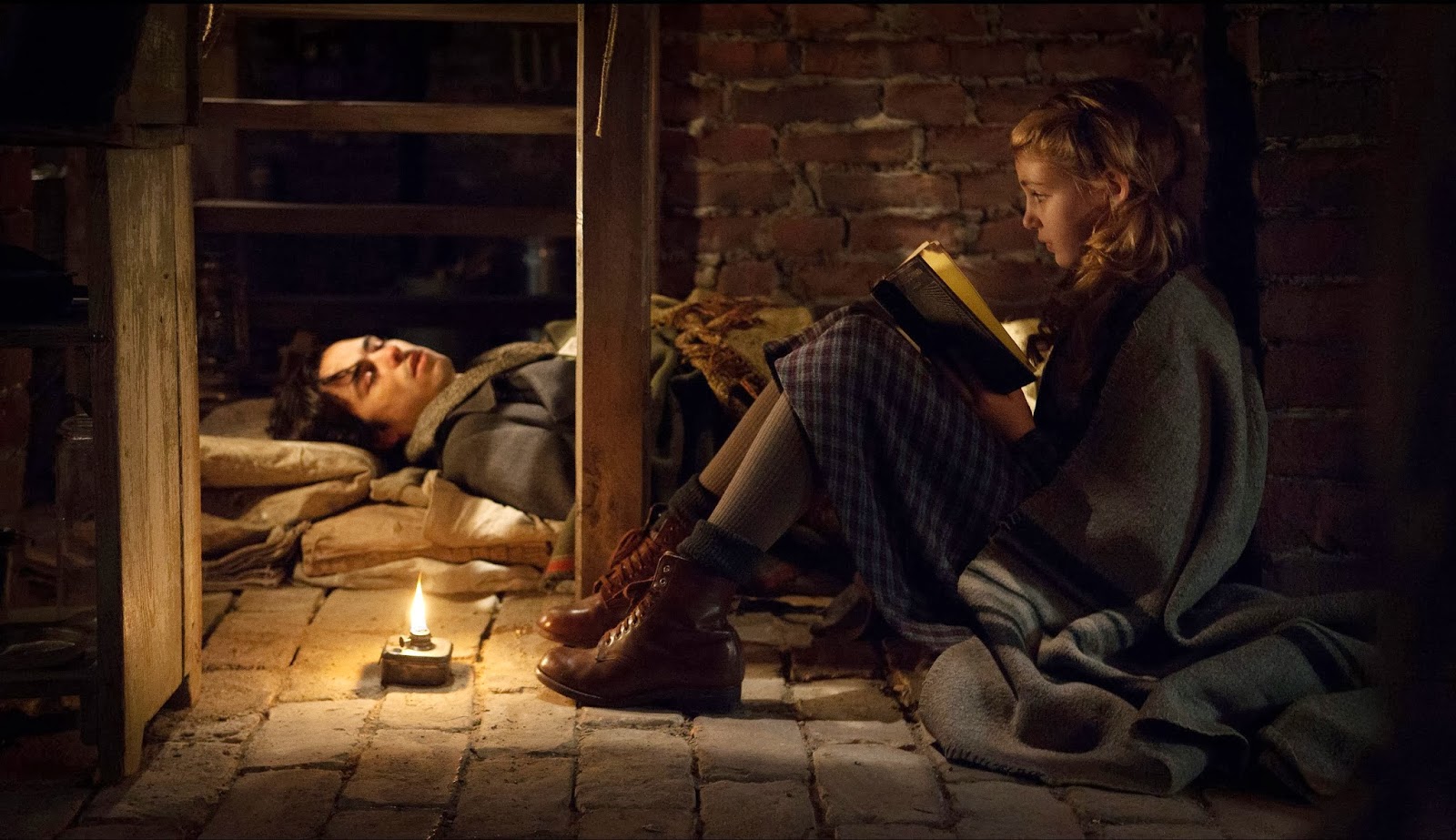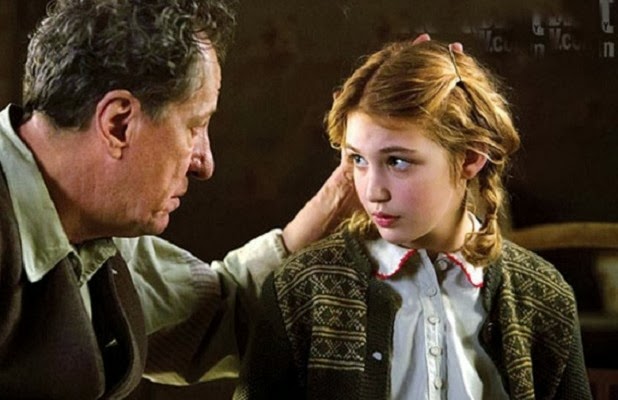The Book Thief is one of my all time favourite books, and when I heard that it was being turned into a film I was apprehensive - how could it work? Could cinema truly capture the soul and heart of Markus Zusak's bestselling novel?
I first watched The Book Thief last year at a press screening, with a friend who had also read and enjoyed the book. Both of us absolutely loved the film, which is why I went to another screening a week ago. This time I went with two different friends who had also read the book and one who had not. Again, we all loved it and left the cinema emotionally moved and singing the film's praises.
You might ask why I am starting my review with these seemingly mundane details, but the reason is simple; I have seen too many negative reviews of this film. Each one has referenced how it is an adaptation of Zusak's brilliant book but I am lead to believe that not a single one of those critics had read Zusak's brilliant book, because as far as adaptations go The Book Thief is faultless.
Criticism has been thrown at the film for not depicting the war enough, for the image of war being too white-washed, how the story doesn't seem dramatic enough. Well, that is the crux of Zusak's novel; it is the telling of World War II when following a young German girl called Liesel (Sophie Nelisse). The story is not and has not ever been about war, it is all about Liesel. So if you were going into this film, or the book, with the expectation seeing emaciated bodies in Nazi-driven concentration camps then I'm afraid your expectations will not be met and you can stop reading now. Instead, The Book Thief is a heartwarming and charming story of one girls experiences throughout the war whilst living with foster parents in a small German town.
Now that I have got that out of the way, read on for my five star review.
The Book Thief is narrated by Death (Roger Allam) himself and follows Liesel, a young girl who is sent to live with a foster family during World War II. Liesel finds solace from the brutal reality of war by indulging in stolen books and sharing them with others. However, when Max (Ben Schnetzer), a Jew, comes to Liesel's foster family for sanctuary and protection, Liesel's life changes forever.
 Markus Zusak's story is innovative and inspiring and has beautifully re-created by director Brian Percival for the big screen. The aesthetics alone are hauntingly beautiful; a snow-covered, war-torn German village that perfectly encompasses the scenery described by Zusak in the book. The perfectly cast characters allow the audience to immerse themselves fully into the story of Liesel's life and root for her the entire way.
Markus Zusak's story is innovative and inspiring and has beautifully re-created by director Brian Percival for the big screen. The aesthetics alone are hauntingly beautiful; a snow-covered, war-torn German village that perfectly encompasses the scenery described by Zusak in the book. The perfectly cast characters allow the audience to immerse themselves fully into the story of Liesel's life and root for her the entire way.Aged just 13 years old in their feature debut, Sophie Nelisse and Nico Liersch, who plays Liesel's best friend Rudy, are outstanding as the protagonists. Nelisse plays the complex character of a feisty yet heartbroken girl who has lost everything in the war and she leads the film with a charm and charisma that is second-to-none. Her relationship with Max, the hidden Jew, is perhaps the most important element of the story and she plays it with such tender emotion it is impossible for your heart not to ache as she tries to bring the outside world to the confines of the basement where he is hiding.
Emily Watson also shines as Liesel's stern but devoted foster mother, Rose; perfectly portraying her character's many layers by maintaing a strict and brash exterior whilst keeping it clear that she loves both Liesel and her husband Hans more than anything. However, Hans is arguably the star of the show; played by the brilliant Geoffrey Rush he is perhaps one of the most beloved book characters of the last 10 years and Rush, with the help of Percival, somehow manages to add even more warmth and charm to his live-action counterpart in a flawless embodiment of the character. In particular, Hans relationship with Liesel is nothing short of heart-warming and will have you both laughing and crying throughout as you desperately will for nothing bad to happen to either of them.

In addition to the lovable characters and heart-breaking narrative, the most captivating aspect of The Book Thief comes from its narrator: Death. Prominent throughout the film in the form of an elusive voiceover, he offers great perspective as, in his own words, nobody served the Fuhrer as loyally as he during the war. Death's fascination with Liesel is the crux of the story and leads to his conclusion that after following Liesel's life so intimately he is in fact haunted by humans.
As mentioned before, the critics who have been slating the film make it obvious that they had not only failed to read the book but they also failed to research the story to know what they were going into. You do not need to read the book in order to enjoy the film, that is a fact. However, I would say that you need to know going in that this is not your typical war film, so if you are expecting brutality and disturbing shocks, you will be left disappointed.
In reality, when a best-selling book is adapted into a film it very rarely goes so right. The combination of a breathtaking cast, astounding direction and author Markus Zusak's incredible narrative, The Book Thief is the one to watch for 2014. Emotionally charged and beautifully told, it will capture your hearts within moments.
★★★★★







